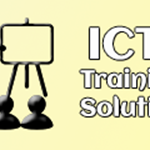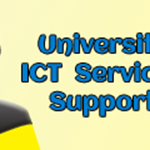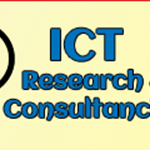Certificate in Early Childhood Care and Education (CECE)
This early childhood care and education programmewas designed to produce specialized teachers who can work in different early childhood institutions that are on increase, child focused NGOs, and in any other area that requires Early Childhood Care and education related skills. The Certificate from the programme may also be used as entry qualifications to degree programmes. Students seeking advanced degrees may benefit from this Certificate programme because they may better be prepared for further study in a wide range of disciplines. Some students may become interested in the advanced study of ECCE specialisation after having completed the certificate.
Programme Summary
Course Name: Certificate in Early Childhood Care and Education (CECCE)
Programme: Early Childhood Education
UQF level: UQF Level 5 Certificate
Duration: 1 year
Total Units: 12 Units
Mode of Delivery: Blended Mode
Programme Informations
The entry qualifications to this Certificate in Early Childhood Care and Education s programme of the Open University of Tanzania [OUT] are:
OPTION I
One who obtained a Certificate of Secondary Education with a Minimum of FOUR passes in any subjects.
OPTION II
One having a National Vocational Award (NVA) Level 3
COURSE CODE | COURSE NAME | Status | Credits |
OCE 001 | Introduction to Early Childhood Education | Core | 10 |
OCE 002 | Introduction to Child Development | Core | 10 |
OCE 003 | Teaching Methods in Early Childhood Education | Core | 10 |
OCE 004 | Inclusive Education in Early Childhood Education | Core | 10 |
OCE 005 | Health, Safety and Nutrition | Core | 10 |
OCE 006 | Learning in Early years | Core | 10 |
OCE 007 | Organization and Management of ECCE Institutions | Core | 10 |
OCE 008 | Mathematics and Science Teaching Methods in early childhood education | Core | 10 |
OCE 009 | Teaching Handicraft, Art, and Sports in early childhood Education | Core | 10 |
OCE 010 | Teaching Language & Literacy in Early Childhood Education | Core | 10 |
OCE 011 | Field Practicum | Core | 20 |
TOTAL CREDITS | 120 | ||
| No. | Item | Local (Tshs.) | EAC/SADC (USD) | Non-SADC/EAC (USD) |
| 1. | Registration Fees | 30,000 | 30 | 30 |
| 2. | Examination fees paid per paper (Test& Exam) | 10,000 | 20 | 40 |
| 3. | Student Organization fees (annually) | 20,000 | 20 | 20 |
| 4. | Student Identity card | 20,000 | 20 | 20 |
| 5. | Quality Assurance Fee (annually) | 20,000 | 20 | 40 |
| No. | Item | Local (Tshs.) | EAC/SADC (USD) | Non-SADC/EAC (USD) |
| 1. | Theoretical course by distance mode | 40,000 | 40 | 80 |
| 2. | Theoretical Course by Face to face | 90,000 | 60 | 120 |
| 3. | Field Practice | 100,000 | 70 | 140 |
| 4. | Teaching practice | 100,000 | 70 | 140 |
| NAME | CONTACTS |
| Sara Muhijeu | sara.muhijeu@out.ac.tz |
This programme provides opportunities for students to develop and demonstrate knowledge and understanding, skills, qualities, and other attributes in the following areas:
Knowledge and Understanding
On completing the programme students can be expected to:
A1 have a strong understanding of young children’s issues, needs, interests, abilities, and the importance of investing in the early years.
A2 have developed a positive understanding and accumulated knowledge in the methods, strategies, and approaches to care and teach young children
A3 have an understanding of how early childhood care and education is related to general education and how it can be used in mobilizing the community, the public, resources, and other professions to ensure quality, access, equity and equality in the provision of education;
A4 have developed knowledge and understanding of designing a curriculum for young children
A5 have developed knowledge and understanding of research, monitoring, and evaluation of early childhood care and education issues;
A6 have developed knowledge and understanding of how to deal with young children, their families, their parents, and interested parties in fostering the development of young children.
Intellectual Skills
On completing the programme students can be expected to have the ability to:
B1 identify, simplify, and apply early childhood principles in analyzing and modeling of caring and learning environment for young children;
B2 identify and apply appropriate teaching/ learning methods for young children
B3 identify and apply appropriate identification, screening, assessment and early intervention methods and strategies for young children with special needs;
B4 identify and apply appropriate research, monitoring and evaluation methods in early childhood care and education; and
B5 identifies and apply planning, administrative and managerial skills in early childhood care and education settings.
Professional/ Practical Skills
On completing the programme students can be expected to have the ability to:
C1 use a range of specific types of teaching methods and support strategies to stimulate and strengthen the use of abilities of young children
C2 effectively use of research, monitoring and evaluation skills in early childhood matters;
C3 write and plan services and lessons for young children;
C4 use a range of strategies, methods, and skills of identification, screening, assessment, and early intervention for young children with special needs.
C5 Plan and effectively manage ECCE centers
Transferable/Key Skills
On completing the programme students can be expected to have the ability to:
D1 follow an independent programme of study through to completion;
D2 plan, carry out, and report on an individual research project;
D3 manage time and work to deadlines;
D4 participate constructively in groups;
- Each module carries 100% marks. The final examination counts for 70% of the total marks. Coursework carries 30% of the total marks
- A candidate shall not pass the course programme unless he/she attains a minimum of 40% (C) in each module.
- The mode of evaluation for the field practice/ teaching practice is 100%






